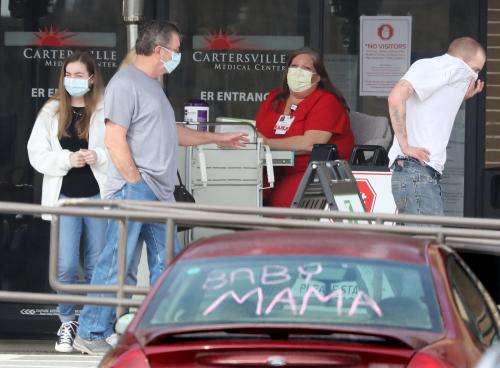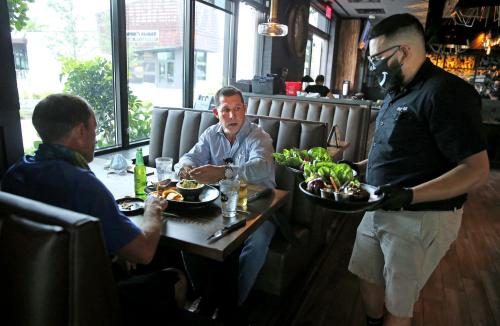Senior Fellow William Frey from the Metropolitan Policy Program has been tracking COVID-19’s spread from mostly urban areas that have a large number of African American residents, and tended to vote more for Hillary Clinton in the 2016 election, to other parts of the country that are less urban, are whiter, and more strongly supported President Trump. On this episode, Frey talks about his analysis and what it means for our understanding of the spread of COVID-19 nationwide.
Also on this episode, Senior Fellow David Wessel asks what shape the economic recovery could take in the months and years to come.
Subscribe to Brookings podcasts here or on iTunes, send feedback email to [email protected], and follow us and tweet us at @policypodcasts on Twitter.
The Brookings Cafeteria is part of the Brookings Podcast Network.






Commentary
PodcastTracking COVID-19’s spread into less urban, whiter, and more Trump-friendly places
June 12, 2020